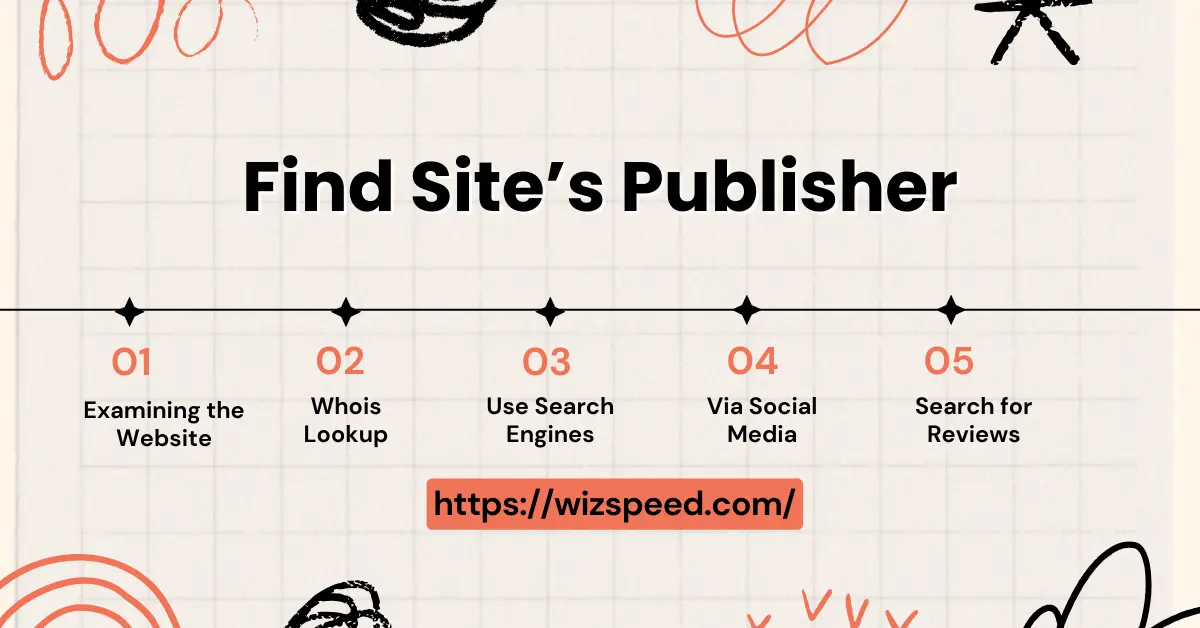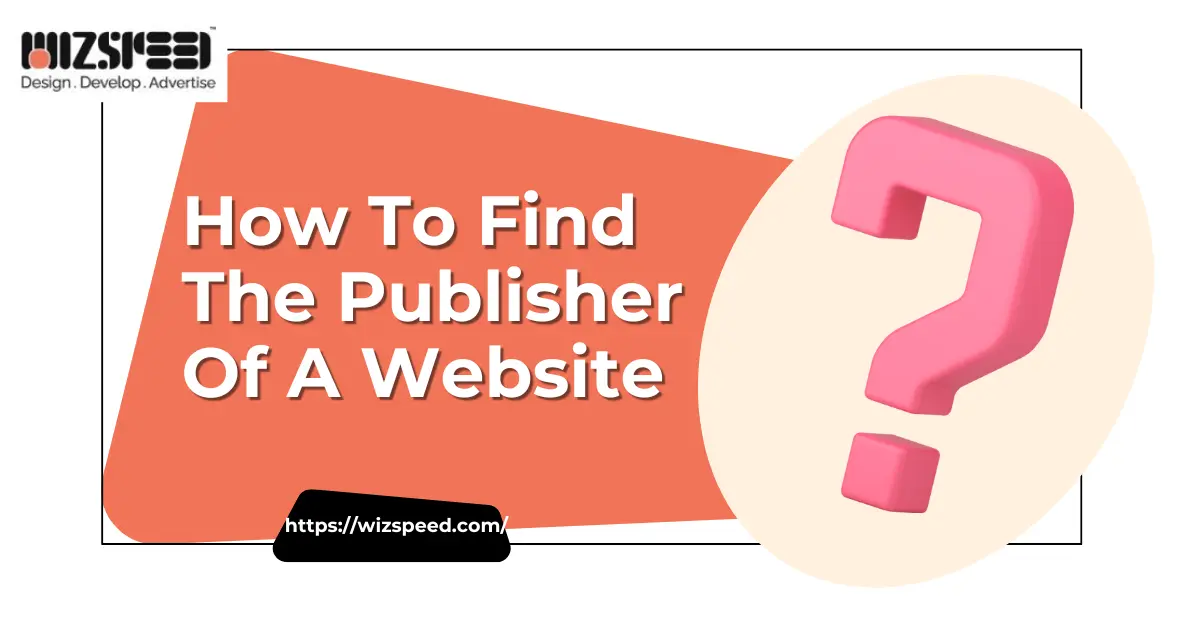Determining the publisher behind a website can be crucial for various reasons. Perhaps you’ve stumbled upon an informative article and want to learn more about the site publisher’s expertise. Or maybe you have encountered an interesting website and desire to connect with the owner for potential collaboration. Whatever your motivation, if you want to learn how to find the publisher of a website or want to know where to find a publisher of a website, you are on the right page. It is because this article is a complete guide, sharing all the possible resources where can you find the publisher on a website.
How To Find Website Publisher?

This guide provides you with a range of strategies to pinpoint a website’s publisher effectively:
1. Examining the Website Itself
- Footers: Analysing the footer of the website could be a great way to find the site’s publisher. The website footer, often located at the bottom of the page, acts as a treasure trove of information. Here, you might find the publisher’s name explicitly stated alongside copyright details like the year of publication. Also, please note that many websites also credit their designers or developers within the footer section.
- Dedicated Pages for Transparency: Reputable websites frequently house dedicated “About Us” or “Contact Us” pages. These sections serve as a platform to introduce the publisher, often outlining the website’s mission, history, and ownership structure. You might encounter the publisher’s name, company details, and contact information readily available on these pages.
- Author Bios: Unveiling the Storyteller: If you’re browsing an article-driven website, pay close attention to the presence of author bios. These sections typically offer a glimpse into the author’s background and expertise. Sometimes, author bios include links to the writer’s personal website or social media profiles, leading you directly to the publisher (if the author owns the website).
2. Whois Lookup
The internet maintains a publicly accessible database known as the Whois directory. This directory stores registration information for domain names, including the website address. By utilizing a Whois lookup tool (easily found online), you can enter the website URL and potentially discover the following details:
- Registrant Name: This often reveals the name of the individual or organization that registered the domain name. In many cases, the registrant is the website’s publisher. However, it’s important to note that privacy protection services can sometimes mask this information.
- Contact Details: The Whois record might also include contact information associated with the domain name registration. This could encompass email addresses or even physical addresses (depending on privacy settings).
3. Social Media
Social media platforms like Facebook, Twitter, and LinkedIn can be surprisingly helpful in uncovering a website’s publisher. Here’s how:
- Social Media Presence: Conduct a search using the website name across these platforms. Many websites maintain official social media pages that disclose publisher information, including company names and contact details.
- Following the Trail: Look for mentions of the website on relevant social media pages. Comments, shares, or posts related to the website might offer clues about the publisher’s identity.
4. Search Engines
Don’t underestimate the power of a straightforward web search! Try using keywords like “[website name] publisher” or “[website name] about us” on a search engine. This might lead you to relevant articles or resources that mention the publisher’s name or background.
5. Search for Reviews or References
When you search for reviews or references to the website on other reputable sites, you’re essentially looking for mentions of the website on platforms like forums, discussion boards, social media, or review websites. Sometimes, individuals or organizations may have discussed or reviewed the website, and in doing so, they might have provided information about the publisher.
6. Contact the Hosting Provider
If you’ve exhausted other methods and still can’t find information about the website’s publisher, you can try contacting the hosting provider. The hosting provider is the company that stores the website’s files and makes them accessible on the Internet. Here’s how you can proceed:
- Identify the Hosting Provider: You can use online tools like Whois Lookup or hosting provider lookup services to determine the hosting provider of the website.
- Contacting the Hosting Provider: Once you’ve identified the hosting provider, reach out to them via their support channels. Explain that you’re trying to find information about the website’s owner or publisher and inquire if they can assist you. Be prepared that the hosting provider might have privacy policies in place that limit the information they can disclose, especially if the website owner has opted for privacy protection services.
While contacting the hosting provider is a less common method, it can sometimes yield results when other avenues have been exhausted.
Key Takeaways for How To Find The Publisher Of A Website
By systematically employing the methods outlined above, you’ll significantly increase your chances of successfully identifying a website’s publisher. Remember, sometimes a combination of these approaches might be necessary. If, after exhausting these methods, you’re still at an impasse, consider reaching out to the website directly using a contact form.
Bonus: Not All Websites Wear Nametags
It’s important to acknowledge that certain types of websites might not have readily identifiable publishers. Personal blogs or anonymous forums, for instance, might not explicitly disclose ownership information. In these cases, you might have to rely on contextual clues within the website content or author bios (if present) to glean insights into the source and potential publisher.
By following these comprehensive strategies, you’ll be well-equipped to identify the publishers behind the websites you encounter, empowering you to make informed decisions and connections within the vast online landscape.


